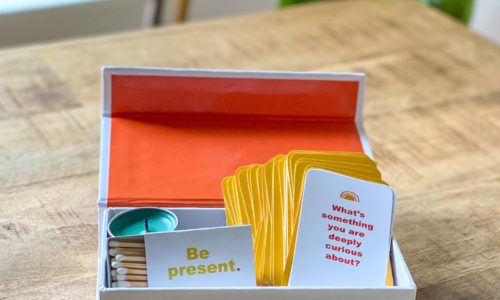The third step to becoming Socratic sounds complicated and a bit bizarre. Here it is:
- CREATE AN ATTRACTIVE GAME AND INVITE PLAYERS.
What does this have to do with being Socratic?
Imagine this: Your child wakes up and jumps out of bed. She runs to log into her computer to get her next clue. She’s on a mission to solve a mystery and feels the pressure of time. She wants to win this race. There is a clue hidden in the book she is reading. She sits down on the sofa and dives deeply into her reading. You have to break her concentration to give her breakfast. Now she’s running upstairs. She knows there are five math problems that will unlock if her answer to the mystery is correct. An hour later, you hear shrieks of joy. She did it! Now onto the next quest…
Like asking great questions, games elicit engagement and focus. They motivate.
Like the Socratic experience, games have rules and boundaries.
And, by nature, a game is a choice. If you are forced to do something, it’s not a game. Just like the Socratic Method – choice and freedom to choose are fundamental to the process.
The games we create at home don’t have to be complicated – the imaginary scene shared above is a more deeply planned quest than most of us have time for these days.
Here’s a simple example: Every morning since this quarantine, I post a challenge on the fridge for my family. At 5pm a competition will be held. The loser does the dishes. This is a game I made up – not to get my children to do their schoolwork, but to add an element of fun and excitement to the close of the day. My competitions are varied – from card games to physical games like touch football, frisbee, darts, egg tosses and four-square. And like a good game, this simple activity has an element of surprise, competition and clarity of rules. Plus, it’s always optional.
Now, transfer this simple idea to your current challenge of “school at home.”
Imagine the whole experience as a game. It’s a learning quest with daily missions and the opportunity to earn points or unlock portals into more fun.
You could say to your child:
“I know you want to be a fireman when you grow up. I’m going to invite you to play a game that will help get you there. The main rule of the game is that you are in charge of your learning and in keeping the contract we signed (see my last post on having a contract).
“To play the game, you have to follow your learning plan from school. BUT, your mission is not just to get it done. In this game, you have to figure out how you’ll use that learning when you’re a fireman. For example, you have math to do. How will knowing math help you as a fireman? When you finish your work, write down or draw a picture that connects what you worked on today to being a fireman in the real world.
“You get 10 points for each connection you make. We’ll add them up at the end of the day. There are different levels to what you can do with your points. Here is a chart to show you.”
Get creative with the incentives. Points could win a family movie night, or a special dessert, or a later bedtime – whatever works for your family. (Foot rubs work well in mine.)
You can see how there is a mix of intrinsic and extrinsic motivation elements within a game. Humans are complicated and not one type of motivation always works. It’s best to inject variety. Soon simply being invited to play the game becomes a motivator. (Acton parents: The quests your Eagles are given are designed with the mechanics of a game so you really don’t need to create more than what we are delivering to them during this time. Use this idea for your family time when you need a jolt of energy.)
Then you say, “Wanna play?”
For anyone who doesn’t, they can go along with their school assignments.
For the rest of you, it will be GAME ON.


